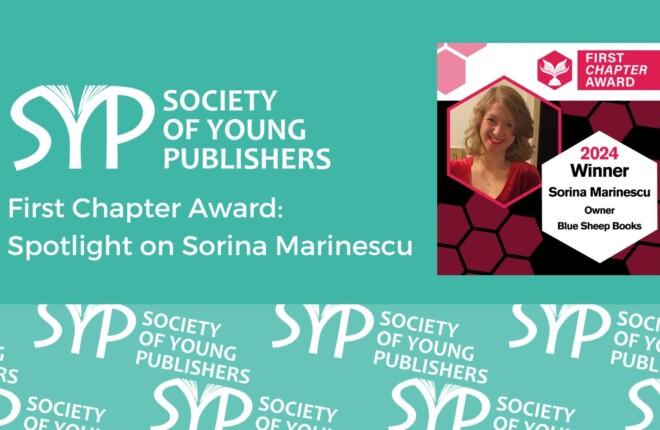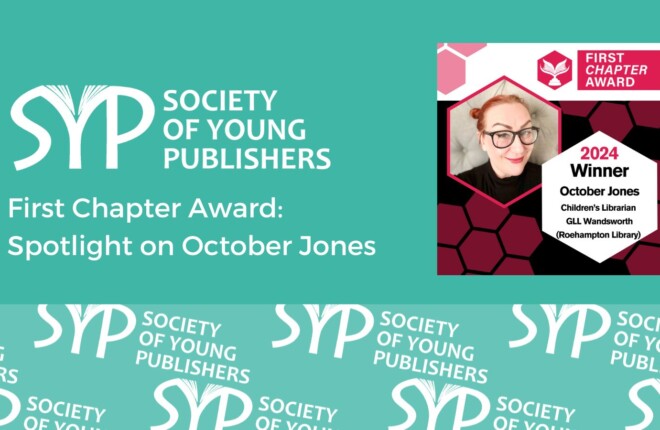
BONUS BLOG POST: Latin America In Translation: An Interview with Samuel McDowell, Co-Founder of Charco Press
Posted on July 16, 2023 in Scotland, UK

In this bonus blog post, Sasha White interviews Samuel McDowell who is the co-founder of Charco Press, an Edinburgh-based independent publisher specialising in translated Latin American literature. An abridged interview can be read in issue 176 of InPrint, SYP’s quarterly magazine, which is available to all SYP members.
Sasha White: Could you tell us a bit about how Charco Press came to exist and the work that you do?
Samuel McDowell: So Charco Press was founded in 2017 by myself and my partner, Carolina. We focus on publishing contemporary Latin American literature in translation. We really try to cover as much of the region as possible. There are some countries we still haven’t been to, but every year we try to add on works from a different part of the region. We’ve just got our first Bolivian author coming out very shortly. The impetus behind it all was really just seeing some incredible writing that was coming out of the region, and some really exciting authors. We then looked to see if these texts were available in English, and they never were. It was quite an eye opening experience. Of all the authors we looked at, I don’t think we ever found one who was available in English, and that is a little bit indicative of how things work. There is just such a small amount of international writing that makes its way into English, and we just thought that it was something that English-speaking readers were missing out on by not having exposure. Also, Carolina has a background in academia, and had been lecturing Latin American Literature at the University of Edinburgh. She had been getting frustrated by the limitations. She was always having to reach back to authors from 30 or 40 years ago from the Latin American Boom, and there was nothing contemporary for her to be lecturing on that was included in the curriculum. So, really, it was spotting that there was this gap that we felt needed to be filled, and we decided that if we didn’t do it, no one would. So we did it.
SW: What are some of the challenges surrounding the translation process and translated Latin American literature?
SM: I mean, the translation process itself is very interesting because it can come down to the work, the complexity of the work. It can come down to the personality of the author, and how involved or not they want to be. It’s never the same. We have some authors who are in rapture with the whole process of somebody taking their words and turning them into another language, and they really want to be involved the whole way. And then we have other offers who are a lot more hands off. So, it really does change the conversation during the process, and it changes how the process works quite substantially. In terms of challenges, it’s really not in the creation of the translations. That’s very manageable. It’s really more about trying to change the opinion towards translated fiction that exists in the English speaking world. It’s not just the UK, it’s the US as well. For comparison, when we first started, the figure that was always bandied around about the percentage of fiction sold in the UK that was translated from another language was around 3-4%. Now, if you compare that with European countries, that figure is more like 15%. So, it’s just indicative of the sort of market that you’re competing in. I think that’s really where the challenge lies because you’re trying to open up people’s minds to new experiences, to trying new authors and to read a little bit differently, and to get past this reputation that translated fiction has maybe had – fairly or unfairly – that it’s quite heavy, or hard going, or difficult, and maybe a bit stuffy. It doesn’t have to be that at all. There’s lots of really exciting and transformative authors out there that write in a language other than English. It’s also more difficult to get reviews in big papers. For example, once a quarter, they’ll do a translated fiction round up, but they’ll only do five lines on five or six different books. Getting an actual, proper review is a lot more difficult because they think that readers don’t want to read about that. Then you walk into bookshops and you have an international translated fiction section off to one side, and that’s problematic. It probably started from a very well-meaning intention, but it kind of enforces that segregation.
SW: You are unique in the sense that translators make up a critical part of the publishing process. How do you select your translators?
SM: Through a variety of options. The translation community is really active and tight knit. They all tend to know each other and so it’s really useful because you could reach out to one translator and if they are unavailable they’ll have three or four recommendations. We find translators through people we’ve known, met and worked with before and recommendations from translators that we work with and respect. Very occasionally, a translator will come to us with a project. Sometimes a translator might come to us with an approach. If the translator is really excited about it that’s a really good sign, because if they have that sort of affinity with the work, and they feel very deeply and passionately about it, then it bodes really well for them having a good grasp of what the work is about.
SW: A lot of the authors you publish are outside the mainstream. Could you talk about the importance of continuing to elevate Latin American voices in contemporary literature?
SM: This is an interesting question because these authors are very well known in their home countries and regions, but often unheard of in the English speaking world. We tend to choose works and authors that we think are trying new things and have an interesting take on the topics that they are bringing forward. A lot of what we publish deals with social issues. It’s not exclusively that, but often there’ll be something to do with social issues within the text as well. We just feel that it’s really important to be bringing those voices in for the purposes of shared experience. The title ‘Charco’ comes from the Spanish meaning a pond or a puddle, and often flying across the ocean, or travelling from the continent. There is the saying of ‘crossing the pond’ or ‘crossing the puddle’ to go somewhere else. That’s what we’re trying to do. We’re trying to build that bridge between countries and cultures. I think the authors that we choose might be writing about experiences from their part of the world, but there are a lot of universal themes: love, death, loss, injustice.
SW: It’s important to highlight how much contemporary writers are shaping these countries and how much they have the ability to impact English readers. Are you hopeful for the impact that translated fiction is and will continue to have on the English speaking world?
SM: I’m very hopeful. I even look outside of literature to see an example of how it looks like things are starting to change. If you’re looking at the sort of advent of platforms like Netflix, you go back ten years and nobody would watch an episode or a series of something that had subtitles. Now Netflix has really been making subtitles available and producing content from different parts of the world. I think it has started to normalise the fact that people are quite happy to read and watch things with subtitles. It’s the same with films nominated at award shows like the Academy Awards. So, it’s beyond just literature. There’s more of an openness to explore and move past this barrier that if it’s not in English, you can’t read or watch it. The Booker Prize Foundation just commissioned some research and discovered that around 50% of translated fiction in the UK is purchased by people that are aged 35 and under. I think it’s really promising that a younger demographic is really interested in exploring literature outside the English language. It’s only going to continue and grow, and I think that’s going to help make translations a bit more mainstream, which is what they want to be.
SW: How has Charco Press grown over the past few years?
SM: We’ve been growing our output over the last couple of years. It’s still a very, very small output but we started doing 5 titles a year and we now do 8 titles a year. We have introduced some new strands which I think talk a little bit to our mission. The first one we started is our Spanish Language Series. What that entails is a couple of books each year or season will be published in Spanish alongside the translated English edition. They come out the same day, have the same cover and produce the same sort of high quality that we put into our production. It also means booksellers can talk about the Spanish language editions without having to be able to read in Spanish because they can talk about the English edition. I think it’s important in places like the US where there is an English market but there is also a big demographic of Spanish speakers. We also started our Untranslated Series which is a series of works written originally in English. The idea is still to try and keep a connection with translation and Latin America. The first one was a non-fiction book called Catching Fire by Daniel Hahn who is a very well-known translator. He kept a diary whilst he was doing a translation of another work for us, Diamela Eltit’s Never Did the Fire. The second one is a novel called Homesick written by Jennifer Croft, who is also a renowned translator and has won the International Booker Prize. It was just longlisted for the Women’s Prize this year which is incredible because it’s the only book we’ve ever published that has been eligible, which again comes back to the challenges we talked about before.
SW: What advice would you give to someone who is keen to pursue a career in publishing?
SM: It’s tricky because I don’t come from a publishing background. I’ve sort of been figuring it out as I go. I understand a lot more about it now. Obviously it’s really challenging. My advice would be when starting out is to try and find your own projects which can get you on to the radar a bit, and from that other opportunities will potentially grow. Network and stay in touch with people, try to build a presence. Doing things like being part of the SYP really helps to raise your profile, I think. I do appreciate that it’s extremely challenging when starting out. If you’re thinking of starting a publishing business, I would suggest making sure that you’re clear on what the goals are for the business and looking at the commercial reality behind it because it’s really tricky. It’s a particularly difficult time for small publishers after the pandemic, shipping delays, supply chain issues and the cost of living crisis. It has put a real squeeze on cash flow. But starting out, just try to be visible and network, try to become part of the industry and from that other opportunities tend to grow. Try not to be disheartened if you’re not getting responses to emails. It’s a tough time because big publishers are posting record profits and small publishers are really feeling the squeeze from all around. It’s hard to get a measure of the industry as a whole because it depends where you are in the industry as to how well things are going.
SW: What is one contemporary Latin American novel that everybody should read?
SM: That is really hard but I’m going to plug one of ours! There is a book called Two Sherpas by Sebastián Martínez Daniell that we put out in early February. The reason I’m suggesting it is because it’s very atypical of Latin America. It’s set in the Himalayas and focuses on two sherpas. It’s very far removed from all things Latin America, and it includes all sorts of facets across history and colonisation. It’s all caught up in just a few fleeting minutes on the top of the mountain as these two sherpas delve into their interior thoughts. I just think it’s a wonderful book, beautifully written, and translated by Jennifer Croft.




 Listen to the podcast
Listen to the podcast  Explore the Youtube channel
Explore the Youtube channel